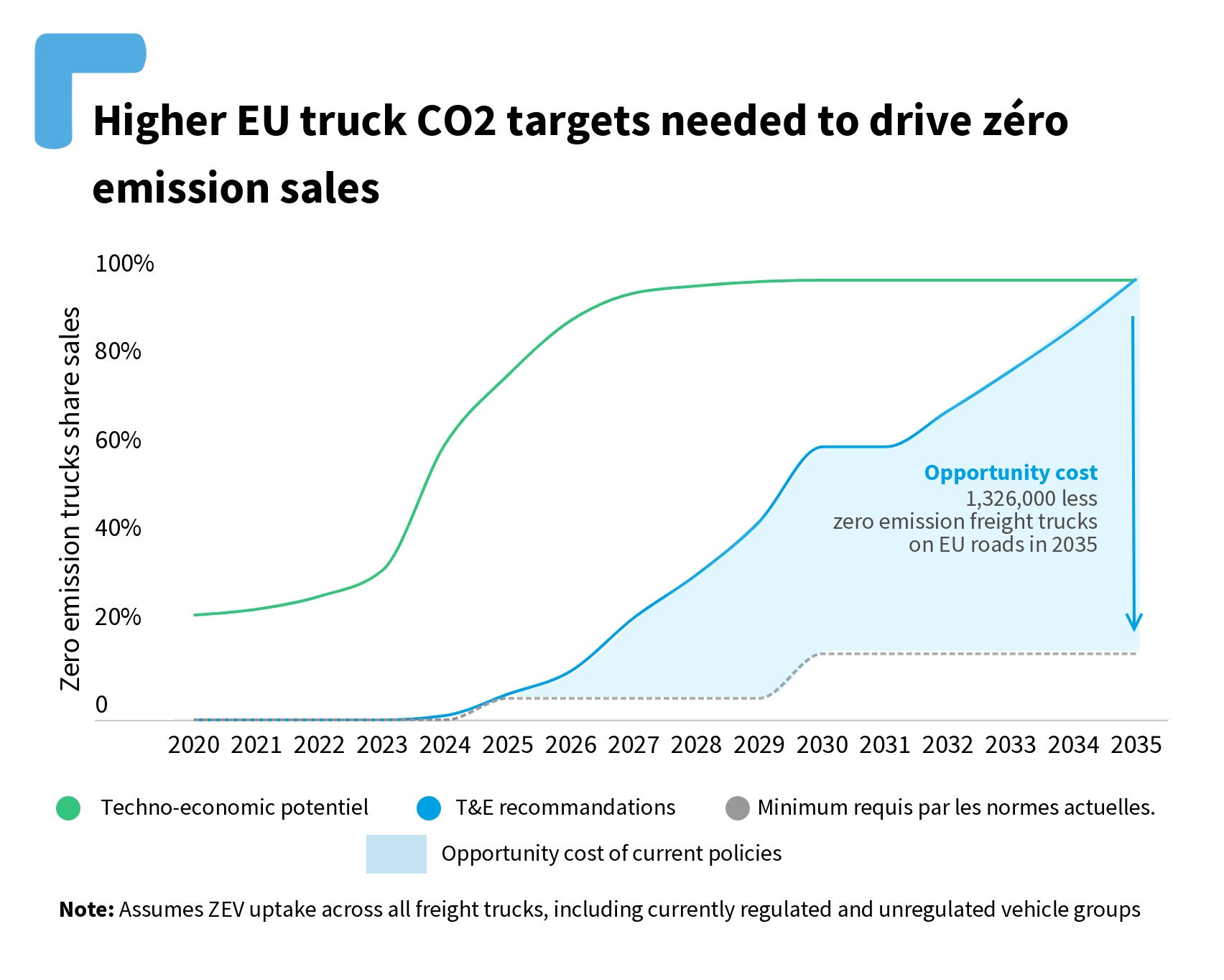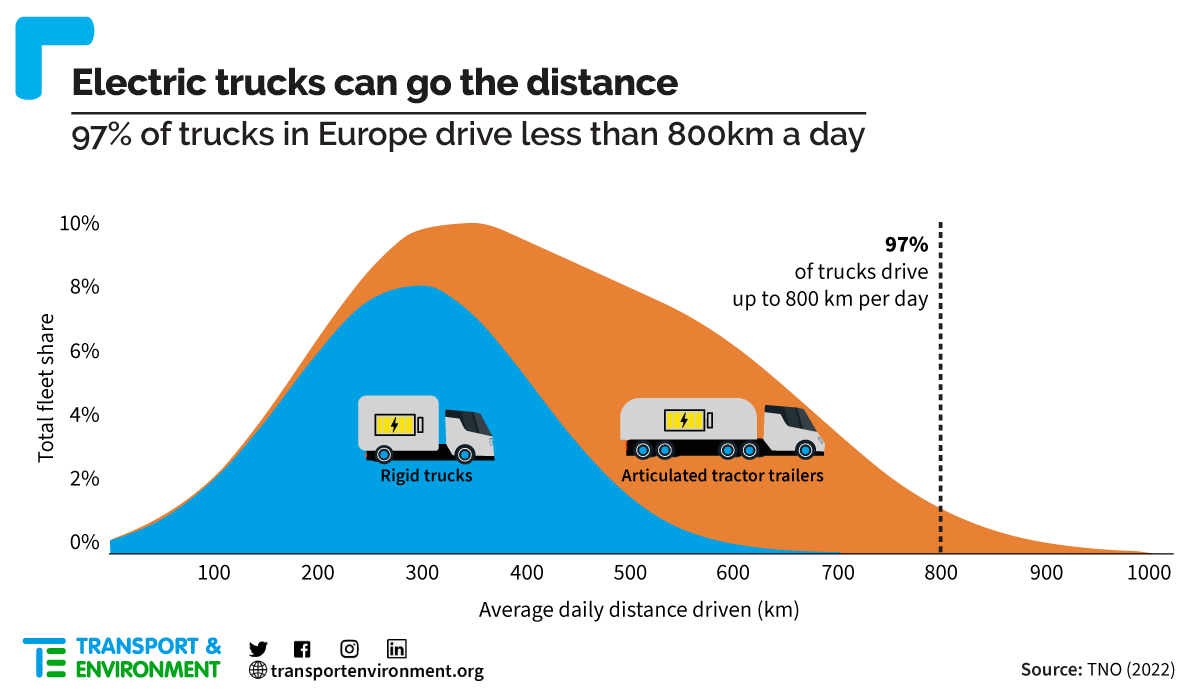By 2035 virtually all new electric freight trucks [1] – including long-haul – will be cheaper to run than diesel trucks while driving as far and carrying as much, a new study by independent experts TNO shows. Transport & Environment (T&E), which commissioned the study in collaboration with Agora Verkehrswende, says this should answer doubts over whether electric trucks can match diesel on cost and operational capability.

By 2035, 99.8% of new electric freight trucks will be cheaper to own and run than diesel trucks, while carrying the same weight of goods over the same distance and journey time, according to the study. In most cases, electric trucks will beat diesel trucks on the total cost of ownership even sooner. The tiny gap to 100% can be easily bridged by a handful of trucks making an extra stop, beyond what is legally required, to charge. Even with that additional stop, they would still be cheaper to buy and run.
Fedor Unterlohner, clean freight manager at T&E, said: “Cheaper, stronger, further. EU lawmakers can set a 2035 deadline to reach zero emissions sales with confidence that electric rigs will beat diesel trucks every time. This will cut costs for hauliers and clean up trucking while allowing European truckmakers to retain their global leadership.”
But an increased EU CO2 target for truckmakers of -65% in 2030 is also needed if zero emissions freight trucks are to reach almost 100% of sales five years later, T&E said. Sticking with the current EU climate targets for truckmakers would result in 1.3 million fewer zero-emission trucks on the road in 2035 [2]. T&E said stronger EU standards from the 2020s onwards would force manufacturers to deliver on their voluntary commitments to electrify. Already today, most zero-emissions trucks in the urban delivery segment beat diesel on cost and capabilities, but weak targets for truckmakers result in them not being supplied to hauliers.

Electric freight trucks will match their diesel equivalents on distance travelled, the study also shows. It finds that almost all freight trucks in Europe travel less than 800km a day – which is within the range of the newest battery electric trucks when charged during the legally required driver breaks. Even the biggest electric long-haul trucks will be able to carry the same weight of goods as diesel by 2030 because the weight of the battery is offset by removing the engine and by a 2-tonne extra allowance for zero emission vehicles under EU rules.

Wiebke Zimmer, Deputy Director of Agora Verkehrswende, said: “Progress towards climate neutrality in transport is not as fast as it needs to be. This makes it all the more important to fully exploit the technical and economic potential for emission-free road freight transport right from the start. In addition to ambitious CO2 standards for trucks, this also requires further measures such as purchase subsidies and CO2-based tolling.”
The European Commission will make a proposal to tighten climate targets for heavy-duty vehicles in the coming months.
Notes to editors:
[1] Trucks which are used for the delivery of goods are referred to here as ‘freight trucks’. They are distinct from so-called ‘vocational vehicles’ such as construction trucks as in some cases these may be harder to electrify.
[2] Transport & Environment, Addressing the heavy-duty climate problem, (2022).
https://www.transportenvironment.org/discover/addressing-the-heavy-duty-climate-problem/
Read more:


